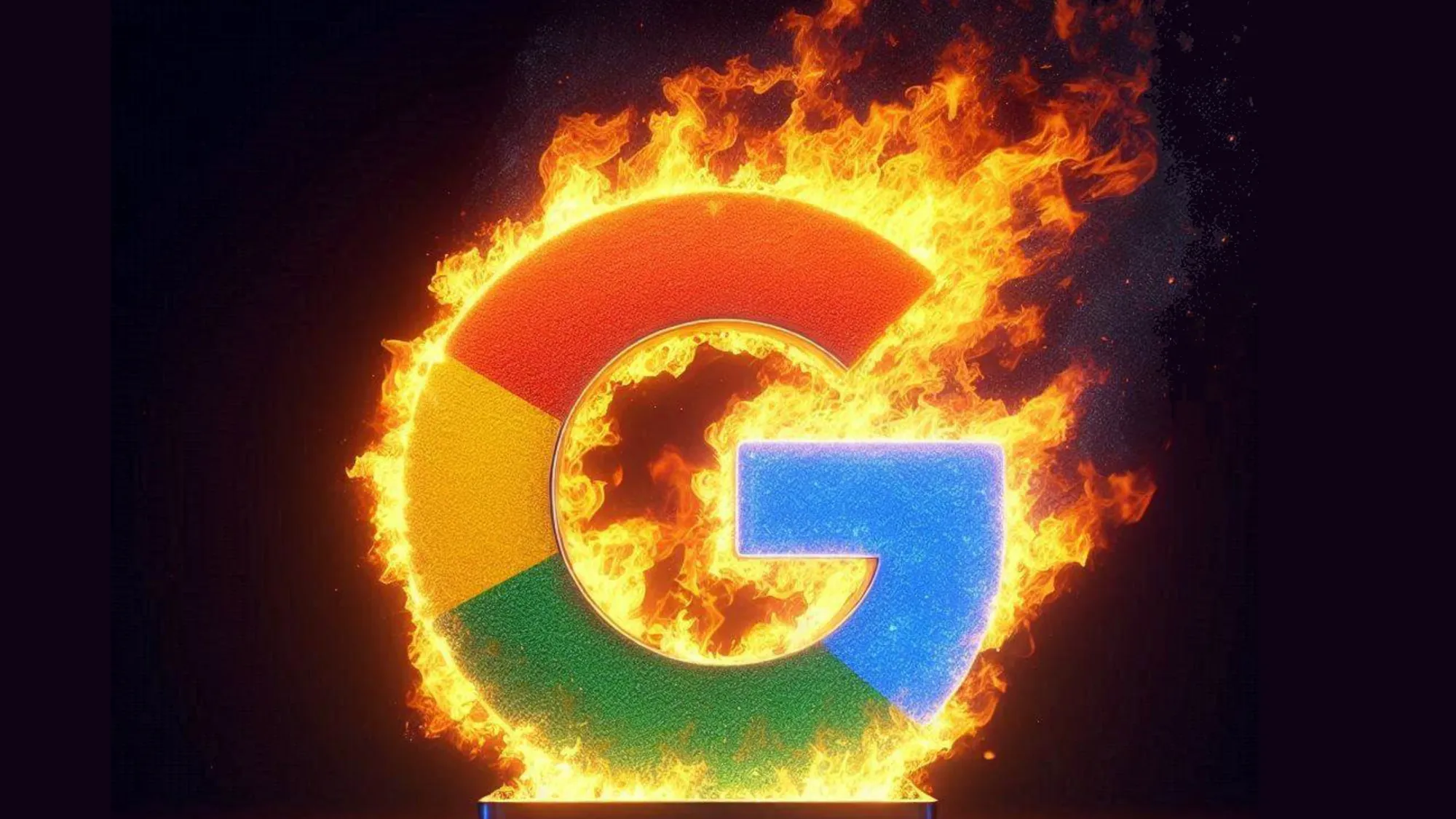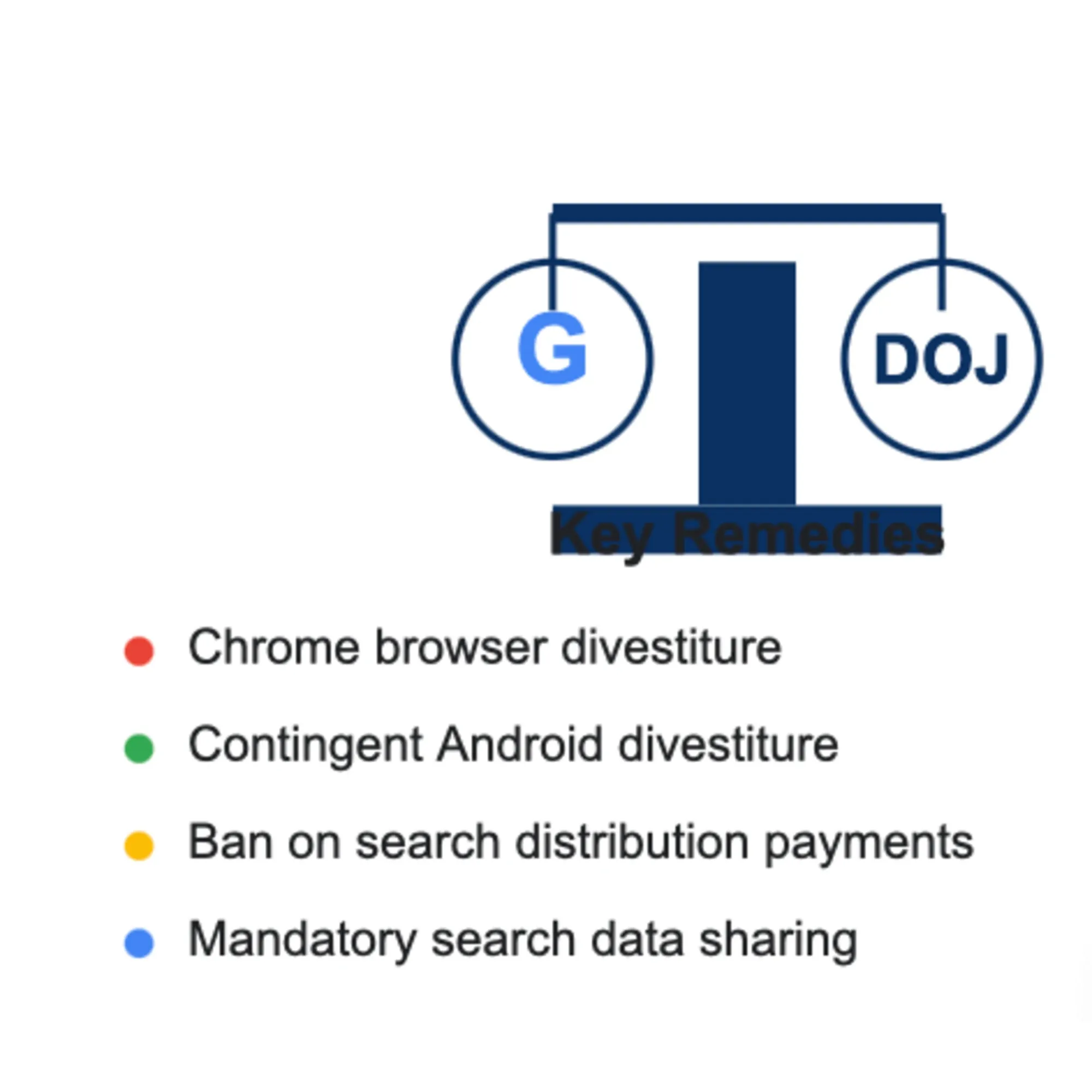Google battles DOJ over "sweeping remedies" as antitrust case enters critical phase
The antitrust battle between Google and the Department of Justice enters a critical phase, with hearing scheduled next week to determine remedies that could alter America's digital landscape.

Yesterday, Google's vice president of regulatory affairs, Lee-Anne Mulholland, published a strongly-worded critique of the Department of Justice's proposed remedies in the ongoing antitrust case. The statement, released one day ago, marks the latest development in a legal battle that began in 2020 when the DOJ filed its search distribution lawsuit against the tech giant.
Get the PPC Land newsletter ✉️ for more like this
"The US Department of Justice's 2020 search distribution lawsuit is a backwards-looking case at a time of intense competition and unprecedented innovation," according to Mulholland. The statement comes eight months after U.S. District Judge Amit Mehta ruled in August 2024 that Google had violated Section 2 of the Sherman Act by illegally maintaining a monopoly over online search and search advertising.
The court determined that Google controls approximately 90% of the online search market overall and 95% on smartphones, maintaining its dominance largely through exclusive distribution agreements with browser developers, mobile device manufacturers, and wireless carriers. Court documents revealed that Google paid $26.3 billion in 2021 alone to ensure its search engine remained the default option on smartphones and browsers.
The DOJ submitted its final proposed remedies on March 7, 2025, maintaining its demand that Google divest its Chrome browser and potentially its Android operating system. The proposal also includes provisions requiring Google to share search data with competitors and banning all search-related payments to distribution partners, including Apple.

Google vehemently opposes these measures. "DOJ's sweeping remedy proposals are both unnecessary and harmful," Mulholland stated. The company argues that the DOJ's proposals "go miles beyond the Court's decision" and would harm consumers, the economy, and America's technological leadership.
Specifically, Google claims the DOJ's proposals would:
- Make it harder for users to access Google by forcing browsers and phones to default to other search services
- Raise prices and slow innovation by preventing Google from competing for search distribution
- Force Google to share sensitive search queries with other companies, jeopardizing privacy and security
- Hamstring AI development by having a government-appointed committee regulate product design
- Break Chrome and Android by splitting them off from Google's technical infrastructure
These concerns reflect the high stakes of the remedy phase. The hearing, scheduled to begin today and conclude by May 9, will determine how the court addresses Google's monopolistic practices while minimizing potential harm to consumers and innovation.
Perplexity enters the fray
Adding complexity to the case, AI search company Perplexity announced yesterday that it has been asked to testify in the proceedings. Perplexity CEO Aravind Srinivas shared the company's position on social media, advocating for a middle ground between Google's minimal approach and the DOJ's more severe proposals.
"Google should not be broken up. Chrome should remain within and continue to be run by Google," Srinivas stated. "Google deserves a lot of credit for open-sourcing Chromium, which powers Microsoft's Edge and will also power Perplexity's Comet."
However, Srinivas also criticized Google's control over Android, noting: "OEMs can only use a Google-approved version of Android, if they want to have core Google apps like PlayStore, Maps, etc. And 'Google-approved' means keeping Google as the default search and Google/Gemini as the default voice assistants."
Perplexity's proposed remedy focuses on consumer choice: "The remedy that is right in our opinion is not a breakup of Google; but rather offering consumers the choice to pick their defaults on Android without feeling the risk of a loss in revenue."
This position aligns partially with Google's own proposed remedies filed in December 2024, which focused on modifying browser agreements and Android contracts. Under Google's proposal, browser companies would retain freedom to partner with preferred search engines while gaining flexibility to set different default search engines across platforms. Device manufacturers would gain greater flexibility in preloading multiple search engines without bundling requirements.
National security and global competition concerns
The case has broader implications beyond market competition. Google emphasizes that the DOJ's proposals could undermine America's technological leadership at a critical juncture. "We're in a fiercely competitive global race with China for the next generation of technology leadership, and Google is at the forefront of American companies making scientific and technological breakthroughs," Mulholland stated.
This argument resonates with concerns about maintaining U.S. competitiveness in AI and other emerging technologies. Google suggests that breaking up its integrated ecosystem could hinder innovation and potentially benefit foreign competitors like DeepSeek, which the company specifically mentions in its statement.
Security concerns also feature prominently in Google's arguments. "Google keeps more people safe online than any other company in the world. Breaking off Chrome and Android from our technical, security, and operational infrastructure would not just introduce cybersecurity and even national security risks, but also increase the cost of devices," according to the company.
What's at stake for marketers and consumers
For marketing professionals, the outcome of this case carries significant implications. Google's search distribution model has been central to digital marketing strategies for years, with the company's dominance allowing for streamlined campaign management across its ecosystem.
If the DOJ's proposals are implemented, marketers would need to adapt to a more fragmented landscape, potentially developing strategies for multiple search engines with varying market shares. This could increase complexity and costs but might also create opportunities for more diverse and innovative approaches to digital marketing.
Consumers might experience both benefits and drawbacks. Greater competition could drive innovation in search technology and potentially reduce data collection concerns, but might also introduce more complexity in navigating digital services and potentially higher device costs if revenue-sharing arrangements are prohibited.
The case also raises profound questions about the appropriate boundaries of government intervention in technology markets. The Supreme Court has cautioned that "caution is key" when it comes to antitrust remedies, a point Google emphasizes in its statement. Finding the right balance between addressing anticompetitive behavior and avoiding unintended consequences remains the central challenge.
Legal process continues
The legal process is far from complete. After the remedies hearing concludes in May, a final ruling is expected before September 2025. Google has already indicated it will appeal both the liability decision and whatever remedies are imposed.
"We have long said that we disagree with the Court's decision in the case and will appeal," Mulholland wrote. "But first the Court must decide what remedies best address its liability decision."
This timeline suggests the case could extend well into 2026 or beyond, creating prolonged uncertainty for Google, its competitors, and the broader technology ecosystem.
Timeline of key events:
- October 20, 2020: DOJ and initial group of states file antitrust lawsuit against Google
- December 17, 2020: Colorado-led coalition of states files related lawsuit
- August 5, 2024: Judge Mehta finds Google liable for monopolization under Section 2 of the Sherman Act
- November 20, 2024: Initial proposed final judgment filed by DOJ
- December 20, 2024: Google files its proposed remedies
- March 7, 2025: Revised proposed final judgment filed by DOJ
- April 20, 2025: Google issues statement criticizing DOJ's proposed remedies
- April 21, 2025: Perplexity announces it will testify in the case
- April 21-May 9, 2025: Scheduled remedies hearing
- Before September 2025: Expected final ruling


